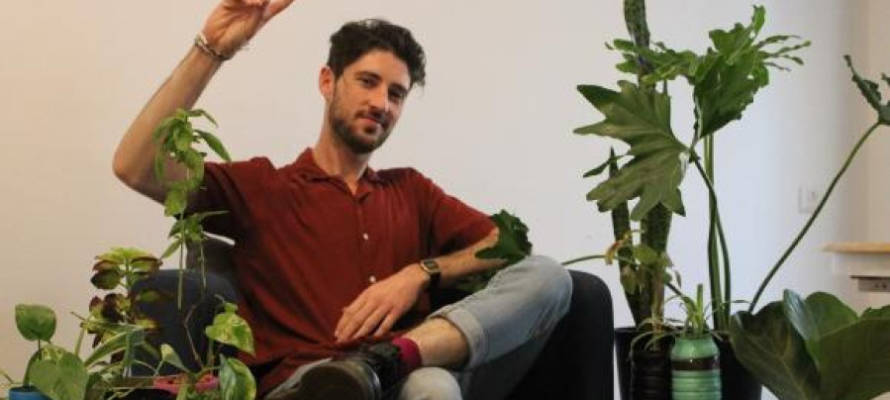“Our main goal is to reduce plastic and air pollution in cities and find a solution to global hunger,” said one of the inventors.
By Yakir Benzion, United With Israel
Put an environmental problem in front of some Israeli students during a pandemic and they may just solve a few world crises for you.
That’s what a group of Tel Aviv University engineering students recently did, cleaning up the environment while producing food for a hungry world.
Being kept inside for much of the past year led to a new trend of growing and cultivating plants at home. Three entrepreneurial students combined their different disciplines to turn their hobby into what the university this week is calling “a revolutionary ecological venture.”
Engineering student Gabriel Godley joined forces with Peter Fassov, a graduate student in conflict resolution and mediation, and Jalal Masalha, a student of accounting and management. They all share a passion for environmental issues.
Their startup company, #PotsFarms, offers plant containers with a stand-alone irrigation system that is made from plastic waste. The materials and the cost of production of the smart facilities are financed through an online plant store, and they will be delivering their goods via green transportation – their bicycles.
“Our main goal is to reduce plastic and air pollution in cities and find a solution to global hunger,” said Godley. “We have created a hydroponic tool for self-irrigation from 100% reuse of plastic bottles.”
But their plans are much bigger than just growing cherry tomatoes on your windowsill.
“With the data we collect, we intend to create an autonomous irrigation system based on artificial intelligence, to manage vegetation in an urban environment, so that in the future we can turn Tel Aviv into an independent grain and food producer,” Godley explained.
The team collects plastic bottles from private individuals all over the city and then cut, shape and paint them, turning them into flower pots. Inside the pots they then install an irrigation system based on wicks that inside the flower pot curls around the roots and simulates the activity of capillaries to draw water upwards, while gravity pulls the water to the roots so that the plants can drink.
Their system bypasses the normal resource intensive recycling process that usually involves disassembling, processing, grinding and flattening the product on its way to becoming a raw material to be turned into something new. Instead, the materials used in #PotsFarms avoid that expensive process and just get reused – a process called upcycling instead of recycling.
Their smart device only needs to be filled once every three months, and it regulates the flow of water to the plant itself.
“This is just the first step in our journey to make plant-growing easier and more accessible,” Godley explained. “Using our new way of generating reusable profits, we have created an economic incentive method for the general public that will make it easier for them to be more aware of the environment, and that is the magic behind our venture. Finding new and fresh solutions to difficult problems.”
Since launching the project early last month, they have created have added another 15.4 square meters of new vegetation to Tel Aviv’s city surface.
“These new green areas contribute an additional 6.8 kg of oxygen to the air of Tel Aviv. By using the bikes, which we use to deliver plants to their new owners, we have saved 13.65 kg of dangerous carbon emissions into our atmosphere,” Godley said. We are very excited to see what the future holds for us.”
The trio is currently raising 100,000 shekels ($30,000) to commercialize their venture. So, if you want a vegetable plot on your urban balcony, stay tuned. The revolutionary growing system will soon be available, but to help raise capital they are already selling potted plants. However, delivery is for now available only via bicycle in the Tel Aviv area.
